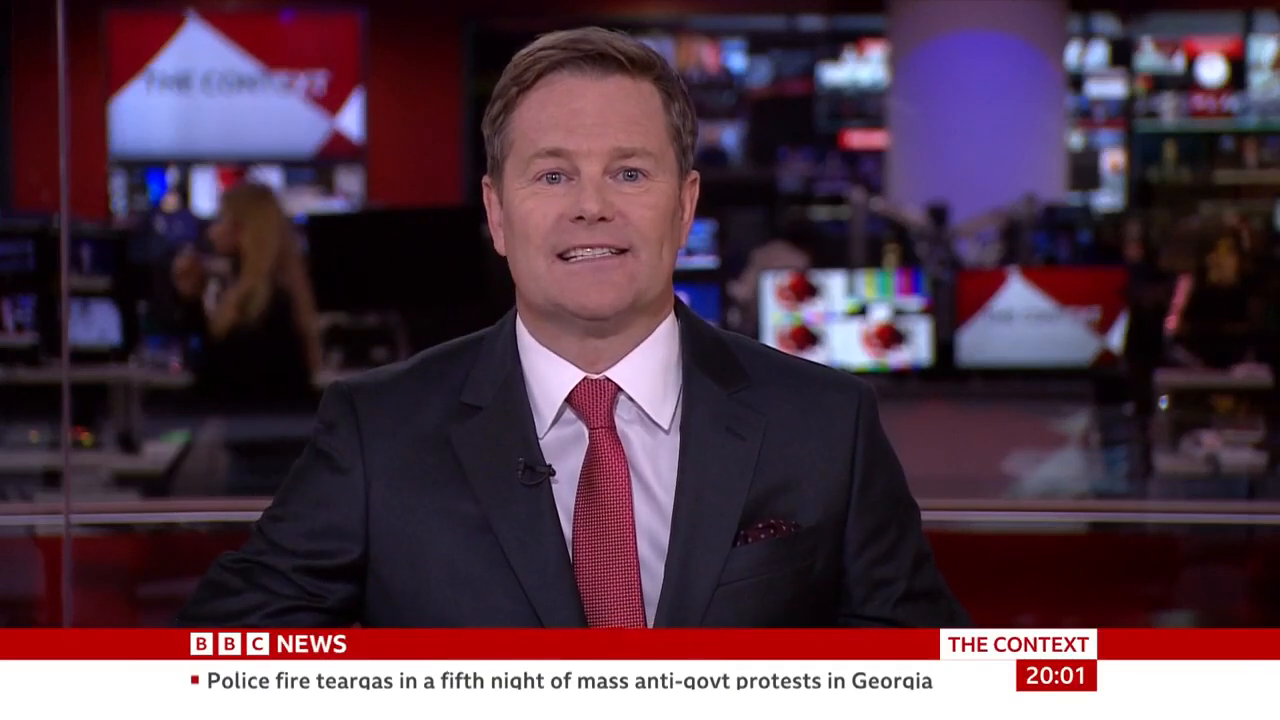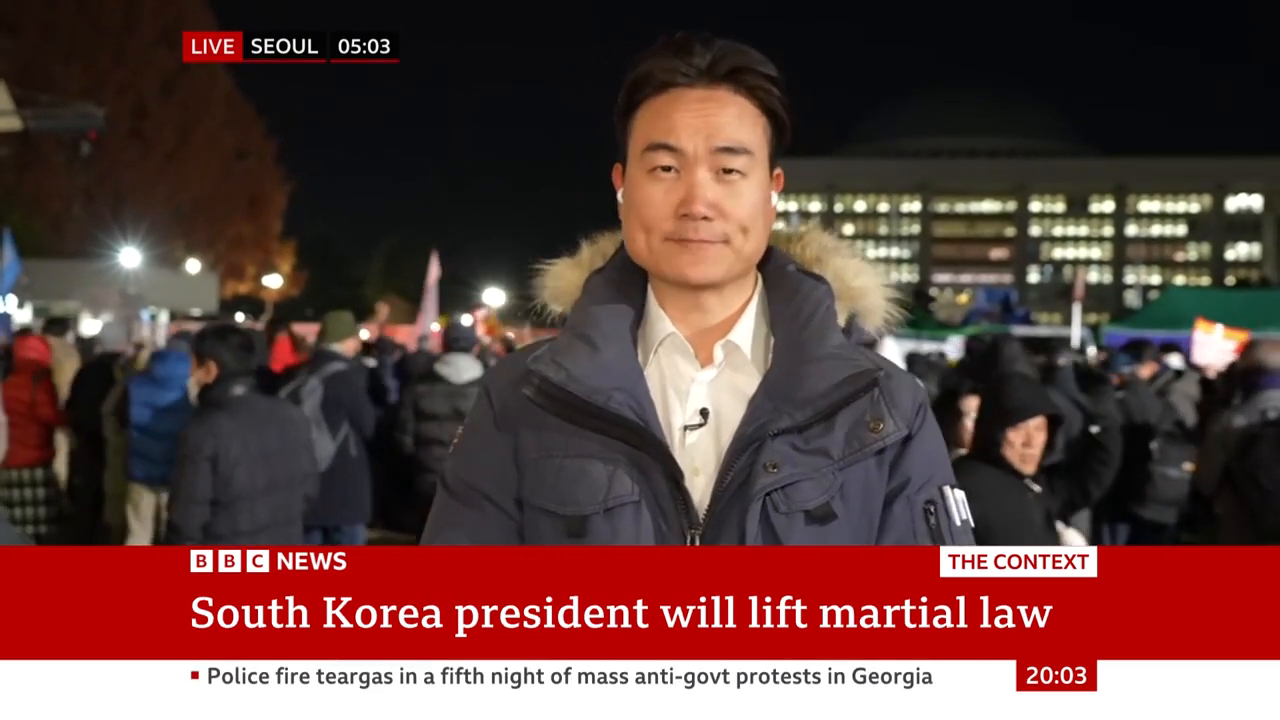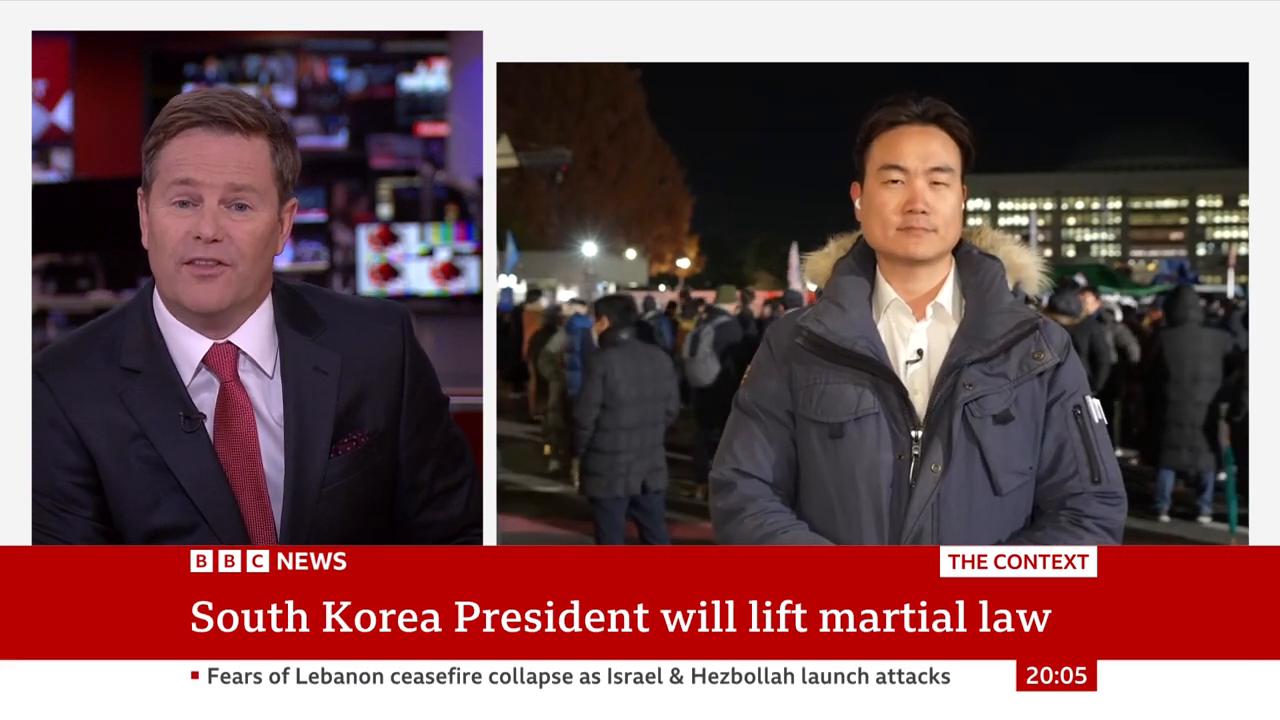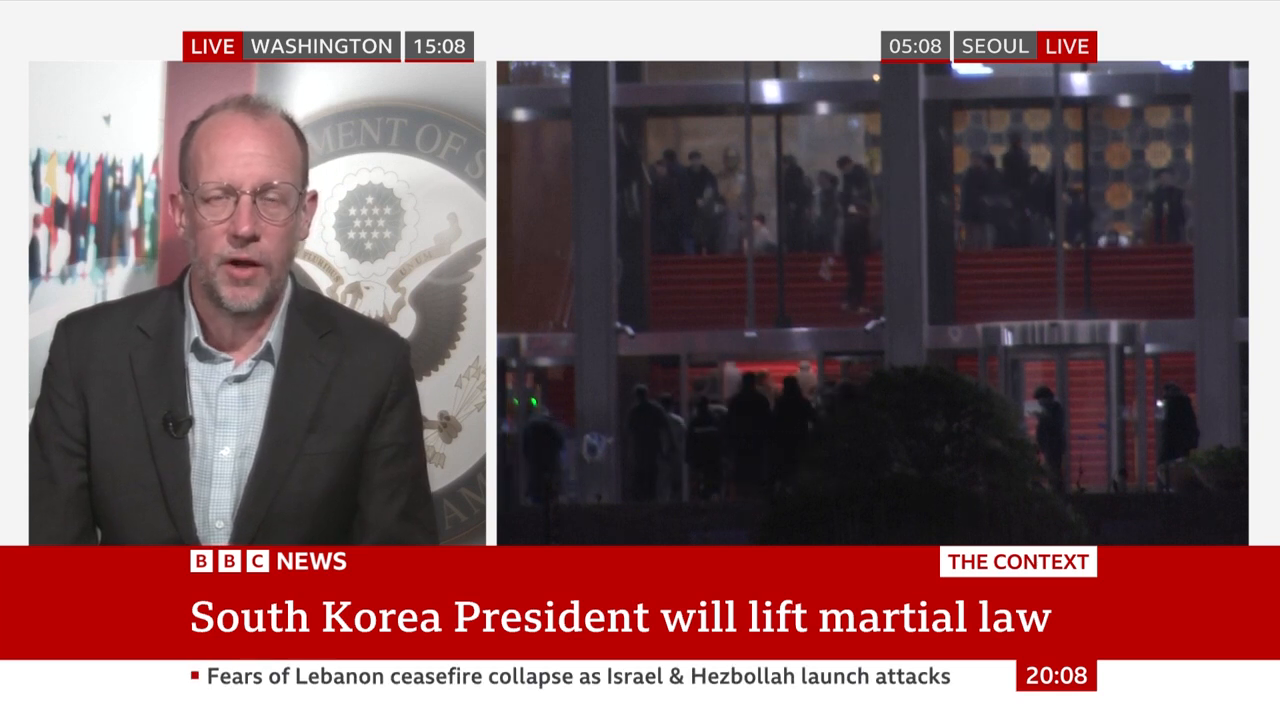Political standoff in South Korea: An unprecedented night of martial law and resistance
In a stunning turn of events in South Korea, a political standoff shook the nation as President Yoon Suk-yeol shocked the country by declaring martial law in a late-night televised address, citing threats from North Korea and alleged pro-communist forces operating within the nation. This drastic measure set off rapid developments, leading to immediate opposition from lawmakers, massive street protests, and global reactions, including from key allies like the United States. Below, we explore this unfolding crisis in detail.
Declaration of martial law: President Yoon’s televised announcement

President Yoon’s late-night national address declaring martial law.
The night began with an extraordinary statement from South Korean President Yoon Suk-yeol. In his announcement, he stated, “I hereby declare an emergency martial law in order to defend the free Republic of Korea from the threat of North Korean communist forces and to eradicate the shameless pro-North anti-state forces that are depriving our people of their freedom and happiness.” President Yoon claimed this measure was vital to restore national stability and safeguard democracy.
However, this drastic move seemed to have taken both domestic and international actors by surprise. The instant suspension of parliamentary activities, a ban on protests, and censorship of media sparked chaos and alarm across the nation.
Immediate backlash: Protests erupt and lawmakers fight back

Thousands protest across South Korea in defiance of martial law.
Despite the restrictions announced under martial law, thousands of courageous South Koreans took to the streets in protest. Opposition lawmakers also joined the resistance in defiance of the measures, with some physically forcing their way into the National Assembly building, which had been occupied by troops and guarded by the police.
Remarkably, the soldiers could not prevent a vote from taking place—an extraordinary moment amidst the tension. Within two hours of President Yoon’s announcement, 190 out of 300 lawmakers voted to overturn his martial law declaration. Under South Korean law, their decision took precedence, rendering President Yoon’s measures legally null.
A swift reversal: Martial law rescinded

Troops vacating the National Assembly following the lawmakers’ vote.
Facing intense resistance both within the nation and internationally, President Yoon gave another televised address soon after, promising to rescind martial law and withdraw troops from the National Assembly. By this point, pictures of troops retreating from the Parliament building had already begun circulating, signaling a quiet rollback of his dramatic measures.
However, despite the apparent retreat, skepticism lingered among opposition lawmakers and the South Korean public. Many doubted if President Yoon would abandon his position so easily, raising concerns of possible subterfuge or future political maneuvers.
Domestic impact: A divided and disillusioned public

Protesters in Seoul remain steadfast amid ongoing uncertainties.
South Korea’s political climate, already marred by dwindling public trust in leadership, has further deteriorated. Lawmakers from the opposition party are now calling for President Yoon’s resignation or impeachment, citing his unilateral, authoritarian decision as a severe breach of democratic norms.
President Yoon’s approval ratings had already plummeted to below 20% before this crisis, worsened by accusations of corruption surrounding his wife and failures to investigate related scandals fully. This growing sentiment of public disenchantment was a significant factor in the opposition’s sweeping victory during the previous general elections in April. For many South Koreans, the martial law declaration felt like a desperate, last-ditch power grab.
International reactions: Shock and unease in the United States
The announcement also left key allies like the United States in shock. Given the strategic importance of South Korea to regional security, this sudden declaration of martial law by a long-time ally caught Washington off guard. U.S. officials stated unequivocally that they had received no prior warning or communication from President Yoon’s administration about the drastic measures.
At a press briefing in Washington, concerns were raised about the implications of the political instability for U.S.-South Korea security operations. With over 28,500 U.S. troops stationed in South Korea and mutual defense treaties in place, the implications of such disorder in Seoul extend far beyond the peninsula.
“South Korea has always been presented as a beacon of democracy in the region,” an unnamed U.S. State Department official noted. “This incident, however, has raised concerns about how fragile that democracy might be, particularly in moments of internal instability.”
Underlying causes: Political isolation of President Yoon
Several domestic challenges provide context for President Yoon’s controversial decision. Since his election to office in May 2022, Yoon has faced mounting political isolation. His administration has been labeled a “lame duck” government following the opposition’s overwhelming electoral victory in April, which stripped his administration of its power to push legislation through the National Assembly.
The growing contempt from the South Korean public has only exacerbated Yoon’s precarious position. From corruption scandals tied to his wife to immense criticism of his policy strategies, Yoon’s presidency has struggled to recover from repeated blows to its credibility.
The opposition-controlled Assembly recently slashed Yoon's budget and moved to impeach several of his cabinet members, as well as prosecutors accused of mishandling cases involving Yoon’s inner circle. By invoking martial law, Yoon may have hoped to reassert control but was instead met with unanimous condemnation.
Democracy under strain: A lesson in resilience
The events in South Korea underscore both the fragile nature and resilience of democratic institutions. Despite an unprecedented power play from the executive branch, resistance from lawmakers, public protests, and legal checks ensured that democracy prevailed.
This episode also reveals the growing strain within South Korea’s political system, where polarization and mistrust between government institutions and the people continue to grow. Whether the rejection of martial law signals a turning point or the beginning of further political turmoil remains to be seen.
Conclusion: A nation at crossroads
South Korea now finds itself at a critical crossroads. The political turmoil resulting from President Yoon’s martial law declaration has exposed deep fractures in the nation’s democratic foundation and trust in leadership. While his decision was quickly overturned, the fallout will undoubtedly shape the country’s political future, influencing not only domestic policy but also its relationships with allies like the United States.
The resilience of South Korea’s democratic system shone through in this crisis, but the nation’s path forward demands reflection, reform, and dialogue to rebuild both public trust and the integrity of governmental institutions. As the dust settles, the coming weeks will be crucial in determining whether this turbulent chapter becomes a catalyst for change or deepens existing divisions.
For ongoing updates and in-depth analysis, subscribe to BBC News.
